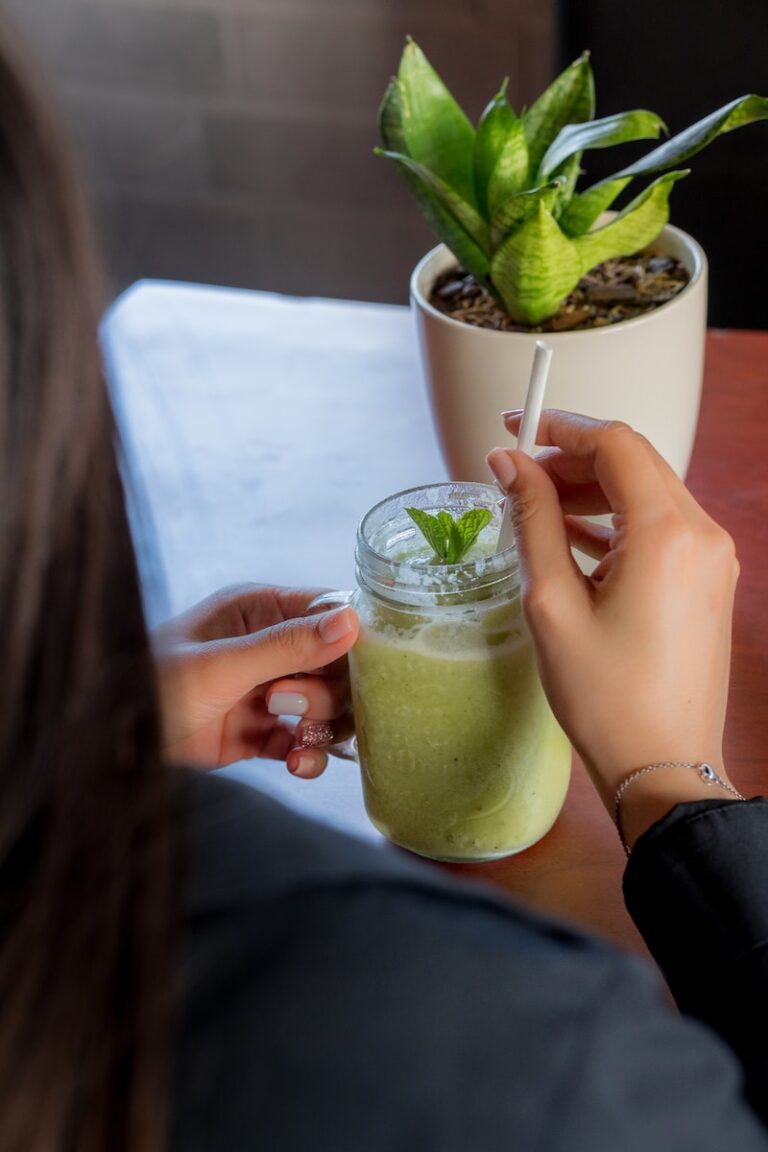Detox – Does Detox Really work?
Healthy Lifestyle
Today, there is a wide variety of detox diets, detox drinks, and dietary supplements with detoxifying effects. However, the understanding of the purpose and principles of detox is often mistaken. One of the most common misconceptions is that it’s just a diet for weight loss. However, the essence of a detox diet, including juices, healthy beverages, and specific foods, is not solely about weight reduction. Detoxification is a way to promote overall well-being, aiming to improve one’s health and normalize mental state. Nutrition is a crucial, but not the sole, component of this process.
What is Detox?
In theory, it’s simple: detox, or detoxification, is the process of removing toxins and harmful substances from the body. Normally, our bodies can eliminate these toxins on their own. However, if the load on the organs responsible for eliminating these substances is too high or their function is impaired, the process of detoxifying toxic substances becomes inefficient. The concept of detoxification is quite vague and does not have a straightforward definition.
 Therefore, detox diets can take various forms – from diets and eating systems to special regimens using pharmacy products and entire concepts. Detox diets themselves also vary: some involve giving up sweets or fatty foods, others include consuming only liquid foods, such as soups, juices, or teas, while others advocate for veganism or vegetarianism in various forms. However, all of them share a common goal: to cleanse and rid the body of toxins by restricting diet and consuming foods rich in antioxidants, helping the body cope with toxins and improving the functioning of organs like the liver and kidneys.
Therefore, detox diets can take various forms – from diets and eating systems to special regimens using pharmacy products and entire concepts. Detox diets themselves also vary: some involve giving up sweets or fatty foods, others include consuming only liquid foods, such as soups, juices, or teas, while others advocate for veganism or vegetarianism in various forms. However, all of them share a common goal: to cleanse and rid the body of toxins by restricting diet and consuming foods rich in antioxidants, helping the body cope with toxins and improving the functioning of organs like the liver and kidneys.
How Does a Detox Diet Work?
As mentioned earlier, the primary goal of detoxification is to optimize the body’s natural cleansing processes. Unhealthy lifestyles and frequent stress can negatively impact these processes. Unhealthy food, chronic lack of sleep, fatigue, and constant stress can seriously affect health. Many people experience emotional burnout and fatigue. A detox diet can be helpful in such cases.
There are two main types of detox diets. The first type involves complete abstaining from solid foods, which is similar to therapeutic fasting. The idea is to drink fruit and vegetable juices and consume soups that contain all the necessary nutrients and vitamins. The second type allows consuming only basic foods.
Basic foods include almost all kinds of fruits, vegetables, greens, mushrooms, and almonds. They contain alkaline macro and micronutrients such as magnesium, calcium, and iron. Moreover, they do not have or have minimal oxidative effects while containing essential vitamins.
 Within the detoxification program, it is equally essential to avoid toxic substances that are often present in our daily lives, such as alcohol, caffeine, and nicotine. To achieve the best results, it’s advisable to reduce the consumption of dairy products, flour, and sweets a few days before starting the detox diet. This increases the effectiveness of the detox diet and improves the functioning of the liver or kidneys.
Within the detoxification program, it is equally essential to avoid toxic substances that are often present in our daily lives, such as alcohol, caffeine, and nicotine. To achieve the best results, it’s advisable to reduce the consumption of dairy products, flour, and sweets a few days before starting the detox diet. This increases the effectiveness of the detox diet and improves the functioning of the liver or kidneys.
This diet should be followed according to a specific schedule. Ideally, it should be maintained for 3 to 6 weeks, divided into three 1-2-week stages. During the first stage, the consumption of harmful products decreases, and the body prepares for the change in diet. The middle stage involves strict detox dieting. This is followed by a gradual transition period, gradually increasing calorie intake to the normal level.
Why is Detox Necessary?
The Purpose and Clear Benefits of Any Detox Program
The essence and obvious benefit of any detox program are cleansing and detoxifying the body. In addition to improving the functioning of various organs, a detox diet brings additional positive results. Skin clears up, sleep problems disappear, and the cardiovascular system starts functioning properly. Many people report an energy boost and an improvement in mood. Therefore, detoxification is recommended for conditions such as emotional burnout and depression.
Thanks to a well-thought-out, low-calorie diet during the detox diet, significant weight loss occurs relatively quickly. Calorie intake is usually reduced to a few hundred calories per day, and as a result, the body begins to derive energy from its own reserves. Additionally, fat deposits are broken down, expelling other harmful substances.
The optimal time for a detox diet is during periods of rest, such as holidays or concurrently with a spa treatment course. A peaceful atmosphere contributes to the best detoxification results. Undergoing a detox program at Waldhotel Health & Medical Excellence medical center, you are under the constant supervision of experienced specialists, which offers undeniable advantages.
Why Detox Programs Face Such Extensive Criticism?
When talking about detox, it’s important to mention that such programs are often criticized. Detractors claim that there is still no scientific evidence of the positive effects of detoxification.
Moreover, the impact of many harmful substances and toxins, such as pesticides, on the body and metabolic processes is not yet fully studied. Additionally, there is a lack of detailed research on the products used in detoxification. Experts usually emphasize the body’s ability to naturally eliminate toxins and harmful substances.
Does this mean that detoxification programs are meaningless?
No. It means that one should approach this issue seriously, and each person needs to decide for themselves whether trying detox is worth it. After a detox diet, the vast majority of people report feeling rested and healthier, indicating that this method of cleansing has benefited them.
Can detox be harmful to the body?
Here, it’s more about trusting the body’s natural capabilities. However, regular care for the body, including procedures aimed at preserving or improving health, can be beneficial.
Myths About Detoxification: How Popular Body Cleansing Really Works
We explain why you shouldn’t trust advertisements but should listen to experts instead.
 Detoxification, or detox, has become a trendy phenomenon thanks to the popularization of a healthy lifestyle. It has been fueled by the interest of manufacturers of special products and dietitians. To understand what detox really is and how it works, we consulted experts and scientific sources.
Detoxification, or detox, has become a trendy phenomenon thanks to the popularization of a healthy lifestyle. It has been fueled by the interest of manufacturers of special products and dietitians. To understand what detox really is and how it works, we consulted experts and scientific sources.
Daily Battle
From a medical standpoint, detox, or detoxification, is the removal of toxins—harmful substances that exist inside the body or enter it from the external environment—along with medications, alcohol, drugs, etc.
A healthy body can naturally deal with such poisoning. The liver, kidneys, intestines, and the immune system can fight toxic substances and eliminate them. This natural neutralization occurs every day. However, during illness or due to very strong intoxication, the body may not have the strength for this. That’s when medical professionals step in, stimulating natural functions or conducting artificial cleansing. Medications, body flushing, blood purification, and antidote administration help in this process.
Detox is essential in the treatment of alcoholism and drug addiction. However, there is another meaning to this term related to the sphere of nutrition.
Trendy Diet
All independent “cleansings” of the body are usually based on the unscientific idea of toxins. These substances are believed to cause depression, joint and headaches, bloating, and predisposition to diseases. Detox in this context involves several methods: mechanical colon cleansing, special diets and drinks, sauna, and massages. During this process, a person must abstain from any harmful habits and unhealthy foods.
Detox has gained particular popularity among naturopathy enthusiasts. They adopted this medical method, claiming that a person’s health depends on the condition of their intestines.
— In medicine, there is no such thing as “slags,” There are no slags. This is confirmed by pathologists and surgeons who perform operations on the intestines. They do not find foreign deposits. The liver and kidneys effectively cleanse the body. Of course, harmful substances are present in it, such as nitrogenous metabolites formed during protein breakdown. If their content in the blood is excessive, a doctor might prescribe hemodialysis or medication. No diet can help here.
Sly Marketing
Despite many manufacturers positioning their products as promoting detox, their effectiveness is not proven. Major bloggers also attempt to advertise the healing properties of various products.
— Most often, it’s just a marketing ploy, and detox products are just regular fiber. Smoothies used as the basis for cleansing contain a large amount of fast carbohydrates and sugar, so these drinks can harm people with diabetes or metabolic syndrome, leading to exacerbations, — Silanov is convinced.
Scientists worldwide also state that detox diets might exacerbate rather than alleviate the situation. The National Center for Complementary and Integrative Health has concluded that there is no compelling evidence that juices, colon hydrotherapy, and other cleansing methods actually remove toxins from the body or improve health.
The main risks for the body posed by many detox diets are related to excessive fasting. It can cause protein and vitamin deficiencies as well as electrolyte imbalances. Furthermore, people on these diets risk overdosing on dietary supplements, laxatives, and diuretics.
As reported by the National Post, detox often involves the use of laxatives, which can lead to reduced levels of potassium or magnesium, as well as dehydration, which can result in severe consequences. Colon hydrotherapy increases the likelihood of microcracks occurring in the colon.
Three Main Myths about Detox
Pharmacist and staff member of the Ontario Cancer Center, Scott Gavura, is confident that modern detox therapies and products are built on three assertions that lack any evidence to support their validity.
Myth 1
The body gradually accumulates toxins that need to be eliminated. Cleanse yourself, and you can cure any disease. This myth was debunked by science as early as the early 20th century, yet it continues to help sell useless services and products. One needs to scrutinize descriptions of detox programs and cleansing products: none of them specify which toxins will be removed from the body. Detox programs often mention “mucoid plaques” that supposedly form on the walls of the intestines due to improper diet. However, science has proven that such “plaques” simply do not exist. Any experienced gastroenterologist can confirm that there has never been a documented case of such a phenomenon in the field of medicine.
Myth 2
Illness is the result of accumulated toxins. Our bodies are in constant contact with a vast number of natural and synthetic chemical elements. However, their presence does not mean they are harmful. Throughout evolution, our bodies have developed incredible defense mechanisms to rid themselves of unwanted substances. Kidneys, the lymphatic system, and especially the liver are complex and effective detoxification systems. Moderation is the key. Even water can be toxic if consumed in excessive amounts.
Myth 3
Detox programs flush out toxins. Detox programs offer various methods to cleanse the body, and one of the most popular is speeding up the liver’s function. Milk thistle is often used for this purpose. While it has been used multiple times in treating alcoholism, convincing evidence of its beneficial effects is still lacking. The second most common method is using laxatives. However, regular usage can lead to something akin to dependency: once you stop taking them, constipation begins.
Does Detox Really Work?
If your goal is to lose weight, a detox diet will indeed help you shed a few kilograms. However, the weight is likely to come back. Therefore, one should not expect long-term weight loss results from detox diets.
If your aim is to remove toxins from your body, don’t waste your time and money. The body is perfectly capable of getting rid of harmful substances regardless of what you eat. Toxins do not accumulate in the liver, kidneys, or any other part of the body, and you cannot eliminate them using the latest detox miracles. Especially avoid diets that promise to flush toxins out of the liver with supplements or offer to “cleanse” it.
The only useful type of detox is a diet that limits processed, fatty, and sugary foods, replacing them with whole foods such as fruits and vegetables, lean meats, and fish.
Nutritionist’s Advice
- Avoid high-calorie, low-nutrient foods, especially for snacks.
- Cut out sugary drinks and drink more water throughout the day. Hydrate your body without adding calories. Start your day with a large glass of room temperature water; you can add lemon juice if you like. Repeat this ritual half an hour before lunch and dinner. Carry a water bottle with you and drink throughout the day. Replace post-lunch coffee with herbal tea.
- Include as many fresh fruits, vegetables, and greens in your diet as possible. Juices, smoothies, and salads are ideal starters. Diversify your diet with foods rich in chlorophyll, as well as herbal teas and seaweed, such as nori.
- Coriander and foods containing citric and malic acids (grapes, oranges, lemons, and other citrus fruits) can help eliminate heavy metals from the body. Foods rich in selenium, such as Brazil nuts, mushrooms, and sunflower seeds, also contribute to this process.
- Don’t forget about healthy sleep. It promotes cell rejuvenation and improves the condition of the heart, muscles, and blood vessels. Aim for at least 7-8 hours of sleep per night.
The key to robust health lies not only in choosing the right dietary program but also in your lifestyle choices. Strive for balance rather than extreme measures. Avoid extreme detoxification methods that require purchasing expensive supplements and diets involving strict limitations. If you have chronic conditions, be sure to consult a doctor before attempting any detox methods.